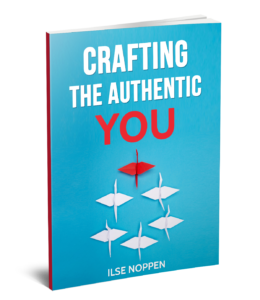
Traditionally society praises more easily what we are DO-ing, what we have achieved, which position we hold, what possessions we have, as signs of being successful. It’s a focus on the output.
Thankfully, increasingly more attention goes to who we are, what kind of person or leader we are, who we are BE-ing.
After all, to quote Maya Angelou: “I’ve learned that people will forget what you said, people will forget what you did, but people will never forget how you made them feel.”
We connect to others through our be-ing. Be-ing is really our essence. That is what we need to nourish, expand, strengthen. That is what gives us direction and courage to create the life we want, to play our bigger inner game.
If we focus too much on what we are doing, on the output, we are potentially more vulnerable.
When we focus on our output, we are likely to feed the hyper-achiever saboteur in us; that voice who tells you to focus on constant performance and achievement for self-respect and self-validation.
Additional to the push coming from a negative energy (‘I must be best at what I do’ ‘You are worthy as long as you are successful and others think well of you’), which is bad enough, this saboteur dramatises setbacks and challenges.
If I identify with being a Marketing Manager and I get fired, I lose my identity in the eyes of my saboteur.
If I think of myself as being a vegan and for health reasons I need to change my diet, that would have a negative impact on my self-image.
If I don’t succeed in this project, my world collapses! I’m worthless.
Those are thinking patterns linked to the output, which is not serving you. Instead, think of who you are being, what input you are giving to reach your goal.
For the marketing manager, it would be better to think of yourself as a leader with expertise in marketing, great big picture thinking and business sense, creativity and whatever qualities you have.
A vegan would be better off thinking of themself as someone who takes care of their health, who lives consciously, who perseveres and keeps their health in mind.
The project manager can think in terms of the talents they used and skills they learned on the project.
Identifying with your B-eing, with who you are, with your input, brings more ease and flow in your life. It also nourishes a growing mindset where we reflect on setbacks and mistakes, to grow and learn.
When something bad happens, it is easier to deal with the challenges from a be-ing than a do-ing mindset. A label can be taken away from you, but your essence can’t. And that is what counts. Be you.
